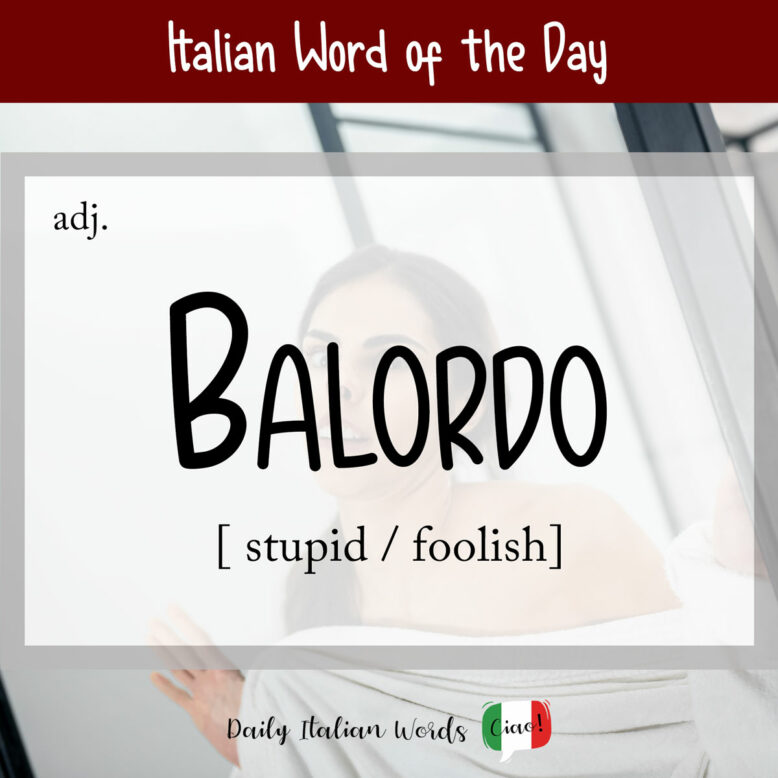Balordo is one of those fun Italian adjectives that you will rarely see in a textbook, but comes up all the time in casual conversation between native speakers. Its etymological origin has not been confirmed. It may derive from the French balourd, which in turn comes from the ancient French beslourd.

Learn with our video
Being an adjective, the ending changes according to the gender and/or plurality of the subject in question.
- balordo = masculine, singular
- balorda = feminine, singular
- balordi = masculine, plural
- balorde = feminine, plural
The primary translation for balordo is stupid, silly, foolish, harebrained or absurd. It can be used to describe both people (e.g. un uomo balordo = a foolish man) and things (un’idea balorda = a harebrained idea).
Non c’è niente di peggio che fare discorsi balordi con persone balorde.
There is nothing worse than talking about silly things with foolish people.

A less common translation for balordo is dazed, stunned or groggy in reaction to a surprise or some kind of indisposition. For example, sentirsi balordo means to feel peculiar.
You can also use balordo when talking about a poorly made object or something does not bode well such as, for example, tempo balordo (unsettled weather) or un affare balordo (a bad deal).
Che tempo balordo! Prima sole, poi pioggia, poi sole… Adesso grandina pure!
What crazy weather! First sun, then rain, then sun… And now it’s hailing!
Sometimes balordo and its feminine equivalent balorda can function as nouns, in which case they translate as fool or idiot. If you say sta facendo il balordo, the person in question is acting like a fool.
In Italian slang, balordo is also one way of referring to a thug, delinquent or lowlife.
Etymologically related to this word are the terms:
- balordone = literally a ‘big balordo‘
- balordaggine = stupidity, monkey business
- balordamente = stupidly, foolishly
- sbalordito = amazed, astonished
- sbalordire = to astound, to blow away
- sbalorditivo = amazing, astonishing
This article is also available in video format on our YouTube channel. The audio version can be found on Podbean, Google Podcast, Apple Podcast and Spotify.
Heather Broster is a graduate with honours in linguistics from the University of Western Ontario. She is an aspiring polyglot, proficient in English and Italian, as well as Japanese, Welsh, and French to varying degrees of fluency. Originally from Toronto, Heather has resided in various countries, notably Italy for a period of six years. Her primary focus lies in the fields of language acquisition, education, and bilingual instruction.


